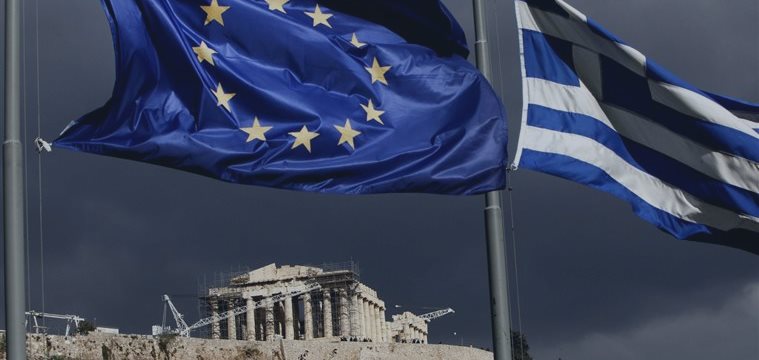
On Sunday Eurogroup chairman Jeroen
Dijsselbloem said that the list of measures the country's government sent to euro
region finance ministers last Friday, including the idea of
hiring non-professional tax collectors such as tourists, is
“far” from complete and the country probably won’t receive an
aid disbursement this month.
The renewed standoff threatens to temper a rally in Greek bonds sparked by optimism over the provisional accord, says Bloomberg.
Greece’s new authorities, elected on a
promise to renegotiate the terms of a 240-billion euro ($260
billion) bailout, have to present detailed proposals to European
creditors or risk running out of cash as soon as this month.
The country is seeking the disbursement of a huge aid
tranche totaling about 7 billion euros. Without access to
capital markets, its only sources of financing are emergency
loans from the euro area’s crisis fund and the International
Monetary Fund. Its banks are being kept afloat by an Emergency
Liquidity Assistance lifeline, subject to approval by the
European Central Bank.
In the hope that the policy proposals would pave the way for the disbursement of aid, Greek administration sent a set of commitments Friday to Dijsselbloem.
However, two officials representing creditor institutions said the proposals, which include tackling tax avoidance through non-professional inspectors and equipping citizens with chipped smart cards, aren’t enough to unlock bailout funds. As Bloomberg reports, the plans seem amateurish and don’t signal substantial progress to meeting the commitments it made on Feb. 20, according to officials who asked not to be identified as negotiations are private.
In its letter requesting an extension to the bailout last month, Greece’s government had committed to streamline sales tax rates, with a view to limiting exemptions, implement a comprehensive review of government spending in every sector, and auction digital frequencies used by TV channels.
The letter, which was sent to euro area finance ministers on Feb. 23, and got their approval the day after, also included a commitment to pension reform, the elimination of loopholes and incentives that give rise to an excessive rate of early retirements, and the removal of barriers to competition in its goods and services markets.
With about 2 billion euros of debt-servicing payments,
including T-bill redemptions and IMF obligations coming due on
March 13, Greece’s government has little room to maneuver.
Survey
Tsipras is walking between Scylla and Charybdis, trying to stock to his election pledges, which found resonance in a country with a 26 percent unemployment rate, and avoid default and a possible exit from the euro region. Some of his post-election glow is starting to fade, one opinion poll showed.
A survey conducted by Marc for the Efimerida Ton Syntakton newspaper on Saturday showed 64 percent of Greeks had a positive opinion of the government, down from 83.6 percent in February.
“Maintaining the unity of the anti-bailout coalition,
while striking a deal which would ease the immense pressure on
the economy, is proving to be almost a ‘Mission Impossible,’”
said George Pagoulatos, a professor of European politics and
economy at the Athens University of Economics and Business.
Next step
If talks between euro-area finance ministers in Brussels fail, the government may have to decide its next step fast.
On the weekend Greece's finance minister Yanis Varoufakis said that if the country’s creditors raise requests which aren’t acceptable to the government, then the people of Greece may have to decide on how to break the deadlock. Prime Minister Alexis Tsipras also noticed the referendum option is being considered.
“If we were to hold a referendum tomorrow with the question, ‘do you want your dignity or a continuation of this unworthy policy,’ then everyone would choose dignity regardless of difficulties that would accompany that decision,” Tsipras told Der Spiegel Magazine, in an interview published Saturday.


